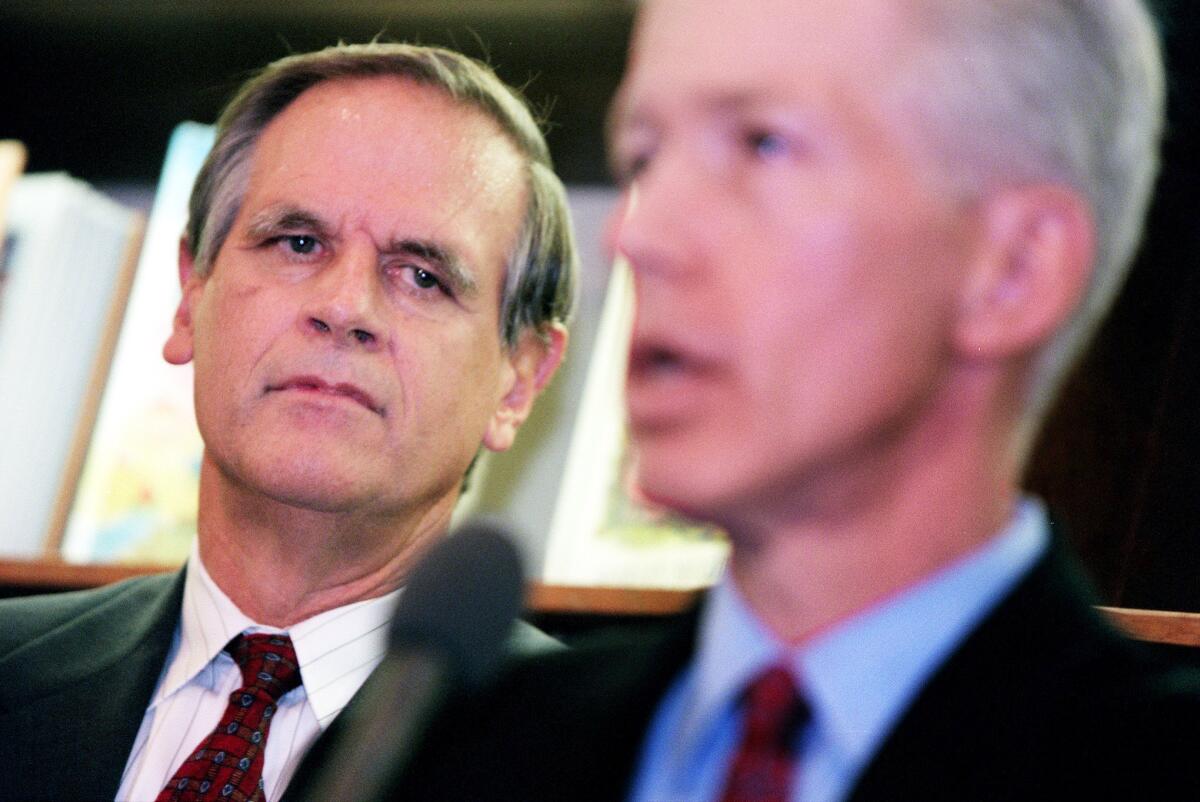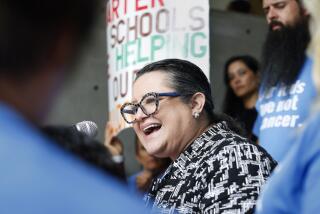Gary K. Hart, charter school architect and former California education secretary, dies at 78

SACRAMENTO — Gary K. Hart, who served as California’s education secretary under then-Gov. Gray Davis and championed the creation of charter schools while serving as a state legislator, died Thursday at his home near Sacramento.
Hart was 78. His family said he died from complications related to pancreatic cancer.
“Gary was widely respected and admired,” Davis said on Friday. “In fact, I cannot recall a single person in Sacramento who ever said a critical word about Gary.”
Though he compiled an expansive public service record on environmental protection and women’s rights, Hart’s signature policy expertise was education. A former high school teacher, Hart’s interest in politics led him to run for seats in Congress and the Legislature — races he lost before ultimately winning an Assembly seat in 1974 representing Santa Barbara.
In 1982, he was elected to the state Senate in a district that stretched along the coast from Santa Barbara south toward Ventura and Los Angeles counties. He retired from the Legislature in 1994.
Hart’s legislative career included a number of education overhauls, including efforts to require skills testing of teachers, graduation requirements for students and limits on the size of K-12 classes. But few achievements may be remembered longer than his 1992 bill to establish charter schools, campuses funded with taxpayer dollars but allowed greater flexibility in their operations than traditional neighborhood schools.
“I didn’t view it as something that was going to be earth-shaking or have the magnitude that it has,” Hart said of his push for charter schools in a 2018 interview with the nonprofit organization EdSource.
The Democratic lawmaker’s plan made California the second state in the nation to provide for the creation of charter schools. The 1992 law called for only a limited number of sites, a small change that Hart said in 2018 he hoped would mean “a lot more focus on quality” and innovation.
The original cap on the number of schools was lifted by state officials in 1996. A quarter-century after that change, there are more than 1,300 charter schools across California, providing instruction to more than 1 in every 10 schoolchildren in the state.
Hart deftly navigated opposition to the charter proposal from the California Teachers Assn., getting the bill through both houses and to the desk of then-Gov. Pete Wilson, who signed it into law.
While charter schools quickly grew in popularity, some sites were mired in controversy as criticism mounted about quality control and inconsistent educational standards. In a 2019 interview with The Times, Hart said it was probably a mistake to assume that local school boards would provide adequate oversight.
“If I had to do it all over again, I’m not sure granting chartering authority to school boards makes a lot of sense,” Hart said. “It was a little bit of a pipe dream.”
Davis selected Hart to serve as his secretary of education just weeks after winning the 1998 race for governor, having run a campaign in which he promised to make public school improvements the centerpiece of his administration. The two men were roommates at Stanford University and served together in the Assembly.
“Gary was my first and arguably most important appointment as governor,” Davis said. “Education was and always will be my passion. We both believed that while only one student could be the best, every student could get better.”
The education secretary post was not well defined, a role that potentially conflicted with that of a voter-elected superintendent of public instruction and the California State Board of Education. Hart, however, was widely praised for his work and helped Davis implement the state’s first exit exam for high school seniors.
Hart left the job in 1999, having only promised the governor to serve for a year. He continued his work on education-related issues, including at the California State University Institute for Education Reform that he co-founded after his time in the Legislature. He remained in Sacramento with his wife, Cary, and their three daughters. In recent years, Hart served on the board of directors of the nonpartisan Public Policy Institute of California.
More to Read
Sign up for Essential California
The most important California stories and recommendations in your inbox every morning.
You may occasionally receive promotional content from the Los Angeles Times.











